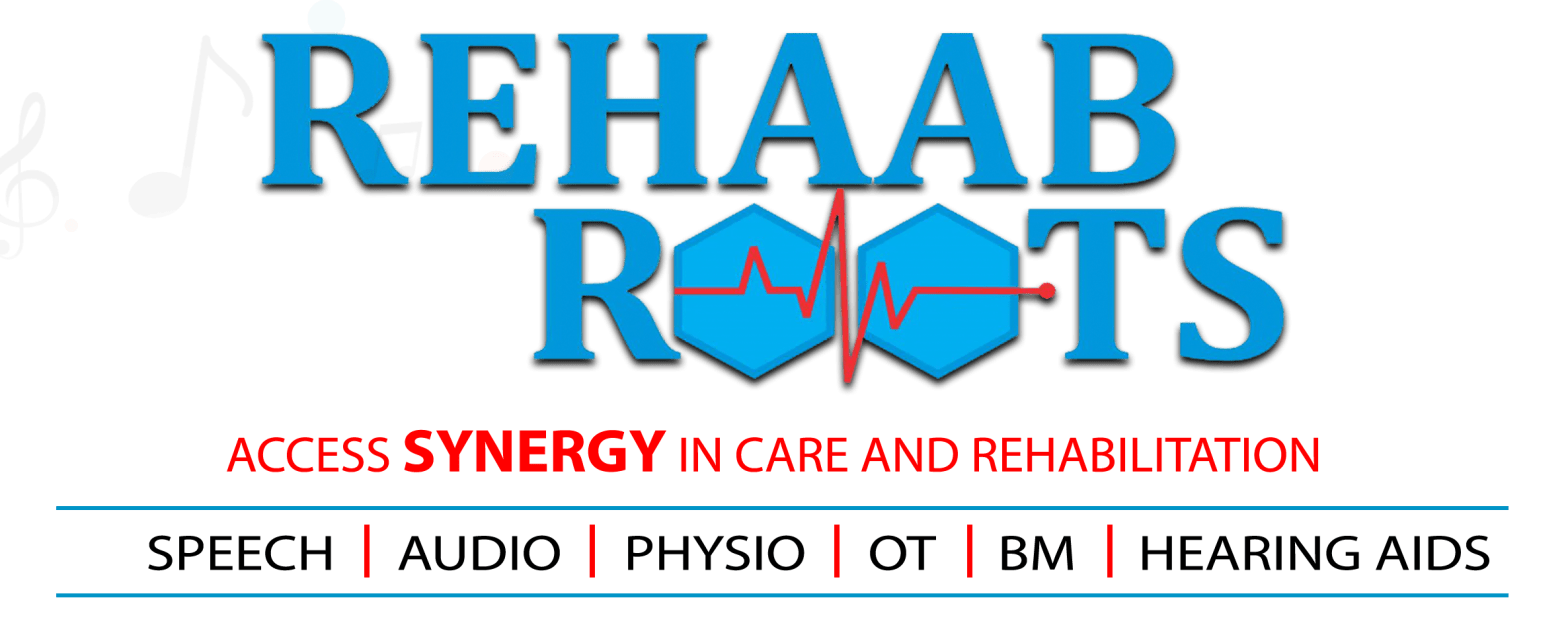SLP works on children and adult having different disorders like:
- Autism.
- Attention Deficit Hyperactive Disorder (ADHD)
- Cerebral Palsy.
- Cleft lip and Palate. (Unilateral or Bilateral)
- Child with Hearing loss/ Cochlear implant (AVT).
- Dysarthria.
- Dyslexia (Learning disability).
- Specific Language Impairment.
- Intellectual Disability.
- Syndromic children with speech and language delay.
- Fluency Disorders. (Stuttering/ Stammering & Cluttering).
- Childhood Apraxia of Speech
- Articulation Disorders. (Substitution, Omission, Distortion & Addition).
- Voice & its related disorders. (Puberphonia, Androphonia, Hoarseness, Harshness Professional Voice users).
- SLP uses Standardized assessment Protocol for assessing and specific therapeutic interventions for all these above disorders.
Causes of speech and language disorders
- Genetic.
- Family history of speech and language disorder.
- Hearing loss.
- Natal history.
- Head trauma.
- Muscle weakness.
- Neurological conditions: Degenerative diseases like Parkinson’s disease, Huntington’s disease, or Amyotrophic lateral sclerosis.
- Dementia.
Why to consult an SLP?
For children:
- If your child is having speech and language disorder, and you ignore it without consulting an SLP then the problem increases in severity or child may acquire secondary behaviors.
- If you find that your child is lacking socialization with peer group or family members or if your
child is finding difficulty in reading, writing, cognition, deviant developmental milestones, feeding issues, poor in academics, having poor memory or
keeps drooling. If your child is unable to produce certain speech sounds or you feel that the speech of your child is not age appropriate.
- If you notice that your child is having poor attention span, eye contact and concertation.
For adults:
If you think that your rate of speech is too slow or too fast among your peer group, then consult an SLP where they help you to overcome your problem and build a wall to your future problems. If you had any recent stroke and having slurred speech, undergoing speech therapy within first 6
months of duration will have neural plasticity which helps in regaining near normal speech production. If you find difficulty in understanding & expressing speech, recalling memories, poor reasoning, poor naming, problem solving, and swallowing.
If there is any problem in your voice according to your gender. An SLP helps in providing information regarding the diagnosis.
When to consult an SLP?
Delay in developmental milestones, delayed speech production, born with high risk, lacking in socialization, having problem in reading, writing, cannot talk clearly, difficulty in producing certain sounds and having poor oral skills.
For Children:
When you find out that your child’s developmental milestones are not age-appropriate like neck control, head turning, crawling, sitting, or standing When your child is having less social skills or does not like to communicate with others.
When your child shows certain behaviors like (having less attention span, concentration, poor eye contact, hyperactive, hurting\hitting own self or others, stubborn, etc…).
When unable to produce certain speech sounds while communicating with each other. When your child is having problem in following simple commands, directions or having limited vocabulary. When your child is having problem in reading or writing.
For Adults :
Stuttering : When you think that your speech is too fast or slow compared to peer group or difficulty in producing certain sounds.
Aphasia : When they is problem in understanding speaker’s speech, recalling old memories, problem solving, poor naming, reasoning, and listening skills.
Voice disorder : When you feel that your Voice is different according to your gender
Resonance disorder : When you find that something is blocking or obstructing regular airflow in oral or nasal cavities while communicating with others.
Dysarthria: Having slow or slurred speech due to weakness or inability to control muscles used for articulating speech or while communicating with each other.
